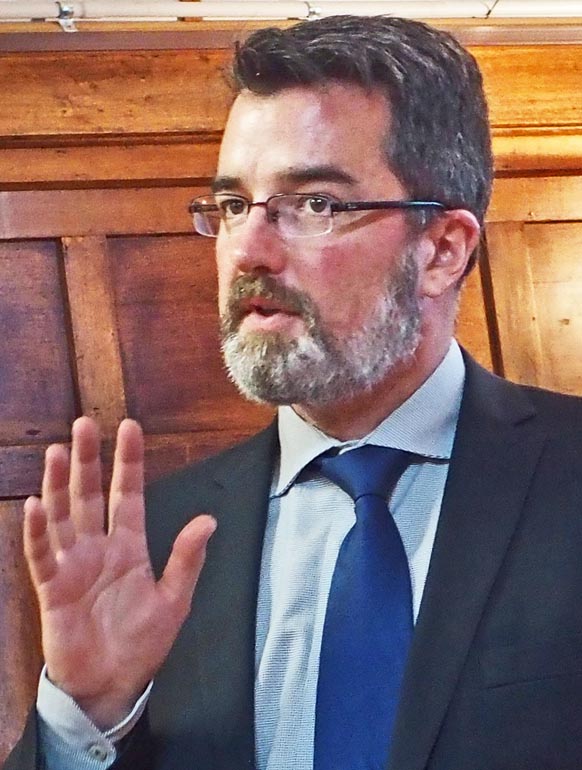Bowel cancer is the second most common form of cancer in New Zealand after prostate cancer, with 3000 new cases each year. Early detection and treatment is critical, and it is important to be aware of the risk factors and the symptoms.
Stefan Corbett, a Karori resident, bowel cancer survivor, and community ambassador for Bowel Cancer New Zealand, spoke at Rotary Karori on 12 June.  Bowel Cancer New Zealand is a national charity for those affected by the disease. It works to raise awareness of the symptoms, promote early diagnosis, and encourage fair and affordable access to treatment.
Bowel Cancer New Zealand is a national charity for those affected by the disease. It works to raise awareness of the symptoms, promote early diagnosis, and encourage fair and affordable access to treatment.
 Bowel Cancer New Zealand is a national charity for those affected by the disease. It works to raise awareness of the symptoms, promote early diagnosis, and encourage fair and affordable access to treatment.
Bowel Cancer New Zealand is a national charity for those affected by the disease. It works to raise awareness of the symptoms, promote early diagnosis, and encourage fair and affordable access to treatment.Stefan spoke of his own journey, the failure of several GPs to identify his symptoms, and ultimately the detection of a major tumour. Fortunately, surgery and follow-on treatment have resulted in a positive outcome.
His experiences motivated Stefan to volunteer to work with Bowel Cancer New Zealand in promoting awareness through sharing his story and information about the disease.
The key risk factors associated with bowel cancer are being 50 years of age or older, having a personal or family history of bowel cancer, and genetic factors associated with the disease.
Though the risk of bowel cancer increases with age, there is also an increasing prevalence in young people.
However, the risk can be lowered by a healthy diet (including plenty of vegetables, fruit and cereals), regular exercise,
quitting smoking, and minimising alcohol intake.
A free national screening programme for bowel cancer is being rolled out around the country. Screening will be offered every two years to men and women aged between 60 and 74 years, who are eligible for publicly-funded health care.